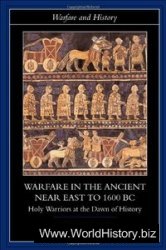Like Googe, Turbervile is mainly known for his lyric collection Epitaphs, Epigrams, Songs and Sonnets (1567).181 That same year, however, he also published translations of Ovid’s Heroides and the Eclogues of Mantuan. Like Palingenius, Mantuan’s eclogues figured prominently in grammar schools (Baldwin 1944: i. 624). Mantuan, an Italian humanist who became a Carmelite in 1463, was (again like Palingenius) celebrated in Reformation England for his criticism of Church corruption. He makes a comic appearance in Love’s Labour’s Lost, when the pedant Holofernes reflects the school-text life of Mantuan by exclaiming, ‘Ah, good old Mantuan’ (4. 2. 93-9)—after garbling the first Latin line of his eclogues. The curricular centrality of Mantuan’s eclogues ensured a powerful relay for Virgilian pastoral, and Turbervile’s popular translation further disseminated Virgilian themes in the vernacular, with the implicitly ‘Reformation’ credential that Mantuan supplied. The repeatedly imagined pastoral community of friendly poet-shepherds in the eclogues of Googe and Turbervile, as an emblem of poetic conversation, resonates directly with friendship’s horizontal politics in and around the Inns.
In the ostensible ‘elsewhere’ of the eclogues’ pastoral context, verse stories are exchanged by poet-shepherds in dialogues. The pastoral transactions these narratives represent usually begin with a request or invitation from one shepherd for the performance of a poetic tale (normally about the tribulations of love, sometimes about town or weather events). Here we see a likeness of the larger traffic in texts going on between friends in and around the Inns. In Turbervile’s translation of Mantuan, the opening phrase of the first speaker, Fortunatus, apostrophizes his ‘Frend Faustus’ (the fourth use of‘friend’ in thirteen lines) and calls for poetry:
Since our flock
In shade and pleasaunt vale Doth chewe the cudde: of auncient love let us begin to tale.
(1567:1r)
Friendship is textually generative.
Heterosexual love receives little endorsement. Faustus tells how ‘cloyd with cares and Cupids coales yfreat’ for the duration of his passion; love not only ‘blynds the senses sore’, but it also ‘reaves the freedome from the minde | of man in monstrous wyse’ (3r-v). Once the protagonist is married, the tale collapses—‘What neede so many words?’ (8r)—ending with a lament on the transience of pleasure (9r). By contrast, the sustaining affect of the eclogues is persistently homosocial friendship. Friendly forms of like-kind exchange drive the pastoral poetic economy. Thus,
Turbervile’s second eclogue is offered as a requital of the first; one shepherd’s tale is repaid by his auditor’s poetic recompense:
His Faustus tale to quite, here Fortunatus gan:
And after to recite
The fonde affects of man.
(9v)
This story more vociferously opposes love than the first. Fuelled by full-bore misogyny (‘No countrey is so barbarous, | is none so savage seckte, | As doth not hate the womans love | and fansies fonde rejecte’), it uses terms of political submission to describe mankind's succumbing to tyrannies of passion. Fancies lead to ‘broiling warre & strife’, and this disastrously causes ‘Lawes and sacred Bookes’ to be ‘in yron chaines ybound’ (i5v). Mankind
First was free, but to his necke him selfe did frame the yoke:
In servile chaine him selfe he bounde, and bands of freedome broke.
(i5r)
The distinction offered here, quite familiarly of concern in Elizabethan legal culture, concerns lawful authority and obedience (‘Lawes and sacred Bookes’) and the ‘chains’ of tyrannical compulsion. The image of the ‘Lawes' in chains cannot possibly be limited to an emblem of private love.
Googe’s ‘Egloga prima’ starts with a similar exchange to those in Turbervile’s Mantuan. It takes place between the shepherds Daphnes and Amintas, who open the volume with the hortatory
Let shepherds us yield also tales, as best becomes the time:
Begin to sing, Amintas.
(1989:45)
In a surprising detail, a woodcut illustrates the collection (Figure 26.1). By reference to the names in the caption, it portrays the two shepherds of the first eclogue. The probably recycled image, however, shows what are more likely to be scholars (or perhaps pilgrims) in Renaissance rather than shepherding garb.20 The figures engage in energetic conversation, posed in forms of rhetorical disputation as one gesticulates with a roll of paper (suggesting modes of writing and not just the poetic sonorities of pastoral vocalization). The woodcut, then, illustrates not so much two rustic shepherds as a more urbane conversational encounter or debate, perhaps between ‘studious friends’. Indeed, the image faces not the eclogue in which its captioned characters appear, but Blundeston’s prefatory address ‘to the Reader’.
20 I am grateful to Ann Rosalind Jones for her helpful consultation on this image.

Fig. 26.1 The friends Daphnes and Amintas in conversation. Barnabe Googe, Eclogues, Epitaphes, and Sonettes (1563), D4r.
The prefatory matter to Googe’s volume situates it squarely in the milieu of the Inns and frames its sociability through the languages of friendship. Blundeston—the Googe volume’s ‘true begetter’ in a practical sense—was admitted to Gray’s Inn in 1561 (Foster 1889: 30). After a verse by Alexander Neville celebrating the poetic honours due him, Googe dedicates the volume to ‘William Lovelace, Esquire, Reader of Gray’s Inn’.182 Gascoigne refers to Lovelace too, in ‘Dulce bellum inexpertis’, remembering ‘all the rest | Of good Grayes Inn’ and ‘Sergeant Lovelace, many ways my friend’.183 For his part, Googe says publication resulted from ‘the following of my friends' persuasions’, calling Blundeston ‘a very friend of mine’ and showering Lovelace, too, with the language of friendship’s unmathematical reciprocities. He offers his book ‘to the perfect view of [Lovelace’s] friendly mind’, counting himself bound by ‘the numbered heaps of sundry friendships’ Lovelace extended him, and yet desiring ‘for recompense the friendly receiving of [his] slender gift’ (1989: 38-9). While Lovelace has clearly attained a position of authority at the Inns, the address marks the relative proximities of ‘friendship', compared to a more distant approach to an inaccessible noble or royal patron, and records the sense of a quotidian traffic in probably minor but materially helpful transactions.
In grammatical terms, the core dynamic of exchange is embodied in the swapping of question and answer. The question-answer format of disputation, of course, was instilled by Tudor grammar schools and developed intensively in the legal environment of the Inns. The address and response verse exchanges we have seen dramatized in Googe's pastoral eclogues and in Turbervile's translations manifest an intersubjective, friendly dynamic. At the broadest theoretical level all literary production is collaborative in this sense. But a particular verse form arising in these contexts, greatly practised by Googe and Turbervile, concretizes these actions: the ‘answer poem'. As Marotti has suggested, ‘given the socially dialogic context of manuscript miscellanies and poetry anthologies [...] it is no surprise to discover [...] various forms of verse exchange, including large numbers of answer poems’ (1995:159-60).184 According to Richard Panofsky, the answer poem draws its energy from ‘the school exercise called thesis, the writing on a given issue either favoring or denying a given position’ and manifests school ‘ideals of using poetic composition as a means of social exchange carried over into the writerly creations of the young men of a literary circle’ (1975: 159-60 n.). Some of the earlier examples are those between Googe and friends and between Turbervile and Googe. The later poems exchanged between Christopher Marlowe and Walter Ralegh—debating, pro et contra, the carpe diem theme—are the best known of this genre.
Earlier verse exchanges between friends, however, tend to engage moral issues, the labours of writing, and warnings against various temptations. Neville’s reply, for example, to a lyric Googe addressed to him exemplifies this:
O happy, then, that man account, whose well directed life Can fly those ills which fancy stirs, and live from bondage free.
Blundeston offers a similar perspective:
Both wise and happy, Googe, he may be hight,
Whom God gives grace to rule affections right.
(Googe 1989: 88, 87)
Such exchanges usually confer about the ‘well-directed life’; they thus embody the acts of counsel enshrined in discourses of‘sovereign’ friendship.185 As is typical of these writers, the languages of self-regulation, reciprocal governance, and political authority share the same idiom.
Googe wrote a number of ‘sonnets’ to male friends, including Alexander Nowell, John Bale, Edward Cobham, and Richard Edwards, and several each to Blundeston and Neville (whose replies are quoted above). Of special interest are two pairs of answer poems. Each involves a poem published by Googe to which Turbervile responds in his 1567 volume. The first involves a friendly refutation of Googe’s well-known phrasing of the proverb ‘Out of sight, out of mind’. In ‘Oculi augent dolorem’, Googe argues that since the presence of a beloved object incites lust, pain, and sadness, her ‘absence, therefore, like I best’ (Googe 1989: 97). Echoing this poem’s rhetorical structure exactly, but to the opposite conclusion, Turbervile’s ‘To Maister Googe, his sonet out of sight out of thought’ argues that nearness, rather than absence, gives less pain (‘The lesse I see, the more my teene [distress]’) (Turbervile 1977: 277-8). The grammatical symmetry frames the exchange as one between equals.
The second pair of verses, important for their friendship theme, includes Googe’s ironic ‘Of Money’, and Turbervile’s reply, ‘To Maister Googes Fancie that begins, give monie mee, take friendship who so list’. They explore the economic dimensions of the conventional wisdom that friends are few when needed, but plentiful when in need themselves. Googe’s ‘fancie’ entertains a conceit that, since ‘Fair face show friends, when riches do abound, | Come time of proof, farewell they must away,’ gold should be preferred since it ‘never starts aside, but in distress | Finds ways enough to ease thine heaviness’ (Googe 1989: 100). Turbervile’s spirited rejoinder urges ‘Friend Googe’ to ‘choose the Friend and let the Monie lie’, since ‘Thy coine will cause a thousand cares to grow,’ but ‘Thy Friend no care but comfort will procure’ (Turbervile 1977: 259-60). Indeed, he urges, ‘The faithfull Friend will never start aside, | But take his share of all that shall betide,’ that is, of both good and bad.186 At stake is a friendly quibble between Turbervile and ‘Friend Googe’ on the true versus the false friend; only adversity reveals the difference. The dialogic exchange enacted in these poems embodies the friendship principle of common property, even as it performs the ‘office’ of friendship as an exchange of moral advice or commentary.
The highest achievement in this mode, however, comes from Gascoigne in 1565, and it structurally enacts the blurry economics of friendly poetic exchange. The occasional ‘Gascoigne’s Memory’ stems from five of Gascoigne’s Inns of Court friends’ agreement to welcome him back to Gray’s Inn—on one condition. As Gascoigne’s headnote explains, ‘Being required by five sundrie gentlemen to wrighte in verse somewhat worthy to be remembered, before he entred into their felowship, he compiled these five sundry sortes of metre uppon five sundry theames which they delivered unto him’ (Gascoigne 2000: 274). The five friends (Francis Kinwelmersh, Gascoigne’s collaborator in Jocasta; his brother Anthony; Neville; John Vaughan, and Richard Courtrop) dictated five paradoxical ‘theames’ of the sort used for classroom dilation, and Gascoigne embarked on a brilliant development of each, including one—‘In Haste Post Haste’ (278-81)—that is arguably the first corona sequence published in English. A tour de force, this mock contract for poetic production between friends records the textual dynamic around the Inns: the fact of its community of proximate gentlemen engendered the production of literary texts in the 1560s. Gascoigne’s ‘payment’ for his return to the ‘felowship’ of the Inns reflects how much this ‘studious' community indexed a distinct institutionality with resonance as a utopian political form. Collaborative or intersubjective practices figured an alternative economy, an elsewhere to the prevailing orders of both capitalist greed and court corruption. The poetic transaction memorializes and situates friendship as the Inns' notional alternative regime.




 World History
World History









